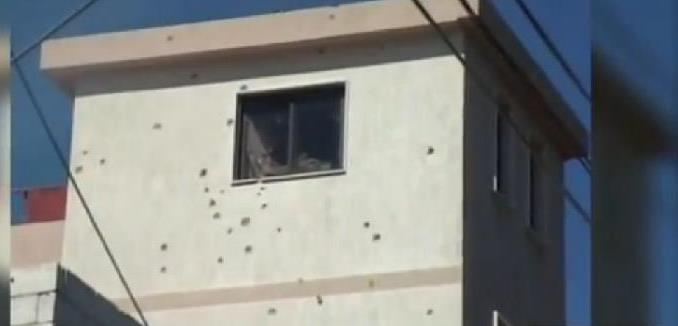Weekend violence and political developments inside Lebanon again have observers focusing on the role played by Hezbollah and its Iranian patrons in undermining the country’s stability.
Debates over the degree to which the West should target Hezbollah have sometimes turned on claims that, in fact, the Iran-backed terror group is a stabilizing force inside Lebanon. Earlier this year Tony Badran, a Foundation for Defense of Democracies fellow, ridiculed the claim as a “nifty conceit.” Badran emphasized that, instead, “Hezbollah has thoroughly subverted the country and its citizens… undermin[ing] Lebanon’s security, institutions, and political system” and that the group was now set to “compromise [Lebanon’s] foreign relations, ruin its financial system, and destroy whatever remains of its social cohesion.”
Hezbollah this weekend participated in a shootout in Baalbek between the group and a Sunni clan. Five people died, Beirut called an emergency government security meeting, and the Lebanese army was dispatched to take over checkpoints in the area that Hezbollah had erected.
Khairallah Khairallah, a Lebanese columnist, has seen enough:
Some examples must be provided to give an idea about the Iranian role. What is Iran doing in Lebanon? Why the insistence to obstruct forming a Lebanese cabinet headed by Tammam Salam? Why is there an insistence to have an Iranian sectarian militia of Lebanese members present in Lebanon and willing to go to Syria to fight a regime which can be described as sectarian? Whose interest is being served by Iran’s fulfillment of this role that in the end will lead to destroying Lebanon and Syria?
Okay, let’s put Lebanon, Syria and Iraq aside. What’s the benefit of the campaign launched by Hezbollah Secretary General Hassan Nasrallah against a state like Bahrain? Is the aim to isolate Lebanon from its Arab surroundings and confirm that it’s linked to the Iranian-Syrian regime upon a pure sectarian basis? Is the aim to confirm that Iran has influence in Bahrain and that it skillfully uses this influence from Lebanon when it doesn’t want to engage in a direct confrontation?
A variety of Hezbollah-linked figures – including former Information Minister Michel Samaha and a Hezbollah-linked sheik – are currently facing prosecution for domestic terror-related charges.
Beyond Lebanon’s borders, recent months have seen Iran and Hezbollah operatives arrested, tried, or convicted Iran in Nigeria, Thailand, and Cyprus. Bulgaria has announced that it will try in absentia the Hezbollah operatives linked to last summer’s bus bombing in Burgas, Bulgaria.
The combination of Hezbollah’s domestic and foreign activity is, according to the Washington Institute’s Matthew Levitt, eroding the group’s standing inside Lebanon:
The self-described “resistance” organization pledged to Israel’s destruction is tied down in a brutal sectarian war in Syria where it is “resisting” fellow Muslims, including fellow Lebanese citizens. Hezbollah’s role in the Syrian war has cost it tremendous grassroots and political support at home, where the sectarian fighting is bleeding across the border and risking renewed civil war. But Hezbollah is also suffering from a series of arrests and prosecutions that are peeling away the organization’s “resistance” facade and exposing the group as the terrorist network and criminal enterprise that it is. And if Hezbollah’s standing in Lebanon continues to implode, perhaps in time the country might not be the comfortable and guaranteed safe-haven for Hezbollah fugitives it has been for decades.
[Photo: PigMine2 / YouTube ]




